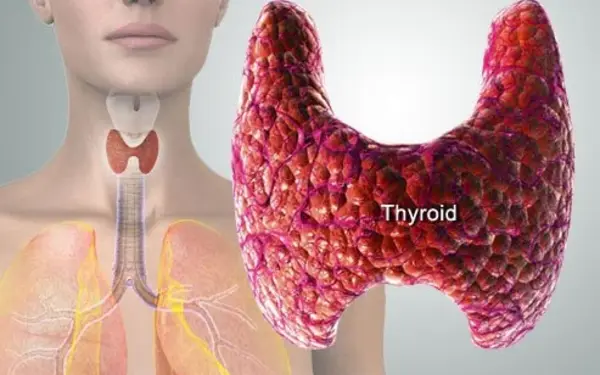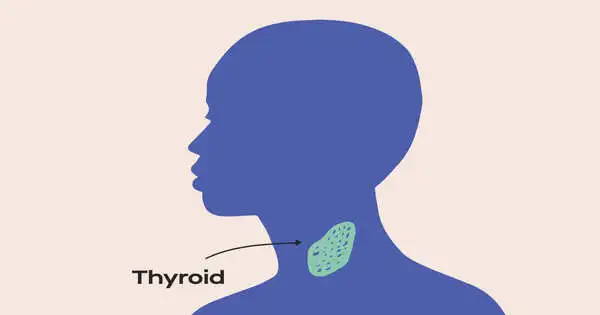Thyroid disease is an umbrella term for a medical condition that prevents your thyroid from producing the appropriate amount of hormones. It is a medical condition that affects the thyroid gland’s function. The thyroid gland is an endocrine organ that is located in the front of the neck and produces thyroid hormones that travel through the blood to help regulate many other organs.
Normally, your thyroid produces hormones that keep your body running normally. When the thyroid produces an excessive amount of thyroid hormone, your body consumes energy too quickly. This condition is known as hyperthyroidism. These hormones normally regulate energy usage, infant development, and childhood development in the body. Using energy too quickly can cause your heart to beat faster, cause you to lose weight without even trying, and even make you nervous.
There are five general types of thyroid disease, each with their own symptoms. A person may have one or several different types at the same time. The five groups are:
- Hypothyroidism (low function) is caused by not having enough free thyroid hormones
- Hyperthyroidism (high function) is caused by having too many free thyroid hormones
- Structural abnormalities, most commonly a goiter (enlargement of the thyroid gland)
- Tumors can be benign (not cancerous) or cancerous
- Abnormal thyroid function tests without any clinical symptoms (subclinical hypothyroidism or subclinical hyperthyroidism).
In some cases, such as subacute thyroiditis or postpartum thyroiditis, symptoms may resolve and laboratory tests may return to normal after a few months. However, the majority of thyroid diseases do not go away on their own.

Symptoms
Fatigue, low energy, weight gain, inability to tolerate cold, slow heart rate, dry skin, and constipation are all common hypothyroid symptoms. Irritability, anxiety, weight loss, rapid heartbeat, inability to tolerate heat, diarrhea, and thyroid enlargement are all common hyperthyroid symptoms.
Although structural abnormalities may not cause symptoms, some people may experience hyperthyroid or hypothyroid symptoms or notice neck swelling as a result of the structural abnormality. Rarely, goiters can cause airway compression, vessel compression in the neck, or difficulty swallowing. Tumors, also known as thyroid nodules, can cause a variety of symptoms, including hyperthyroidism, hypothyroidism, swelling in the neck, and compression of the structures in the neck.
Diagnosis
A history and physical examination are used to make a diagnosis. Thyroid disease screening in patients without symptoms is a contentious issue, despite being widely practiced in the United States. If thyroid dysfunction is suspected, laboratory tests can help confirm or rule out thyroid disease. Thyroid-stimulating hormone (TSH) and free thyroxine levels are frequently measured in initial blood tests (T4). T3 levels, both total and free, are less commonly used.
If thyroid autoimmune disease is suspected, blood tests for anti-thyroid autoantibodies can be obtained. Ultrasound, biopsy, and radioiodine scanning and uptake studies may also be used to aid in the diagnosis, especially if a nodule is suspected.
Thyroid diseases are extremely common throughout the world, and treatment varies depending on the disorder. The mainstay of treatment for hypothyroidism is levothyroxine, whereas hyperthyroidism caused by Graves’ disease can be managed with iodine therapy, antithyroid medication, or surgical removal of the thyroid gland. Thyroid surgery may also be performed to remove a thyroid nodule or to shrink a goiter if it is obstructing nearby structures or for cosmetic reasons.
















